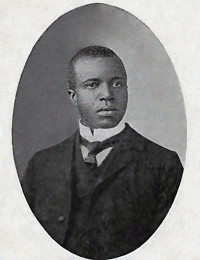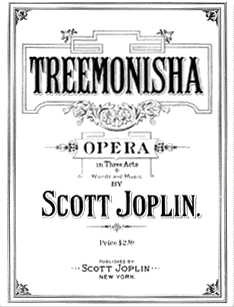American Classics



Treemonisha was a critically acclaimed concert musical production presented by American Classics in 2011.
Please click here to listen to selections from the show.
"This was an evening of wonderful music ... I'd like to think that Scott Joplin himself would have been proud and pleased to hear such a great tribute to his music." - Roger Hall, AmericanMusicPreservation.com, 5/8/11

At a time when several musical theater pieces actually "had legs" on Broadway stages lampooning plantation life, Scott Joplin's (1868-1917) opera Treemonisha (1911) was the first serious and substantive work set in that milieu. The opera, in three acts with twenty seven musical numbers and 230 pages of manuscript, was rejected by every publisher Joplin approached. That the project was deemed too big and too risky to produce (an American opera written by a black composer, even one of Joplin's stature) was an unfortunate sign of the times. Joplin eventually published the score himself at considerable financial risk, working relentlessly to solicit funds for a production. The opera's only "performance" during his lifetime was an unsuccessful backers' audition in 1915, in Harlem with the composer at the piano.
Treemonisha, which ragtime scholar Rudi Blesh called a "black folk fable with the intent of parable, " tells the story of the girl Treemonisha, found as a baby under a "sacred tree" by her foster mother Monisha and raised by Monisha and husband Ned on a plantation in Texarkana. The surrounding forests are populated by conjurers and magicians peddling their "bags of luck" and other charms at a time when superstition prevailed. Treemonisha refuses to be swayed by the conjurer Zozetrick, and despite the presence of friends, family, a preacher, cornhuskers and cotton pickers nearby, she is kidnapped by the conjurers in retaliation for disputing their beliefs. She is ultimately rescued and returns home, the conjurers are forgiven, and Treemonisha becomes the leader and voice of her people. The central premise – and triumph – of the opera is the victory of education over superstition and of good over evil, leading to forgiveness and ultimate redemption.
– Margaret Ulmer